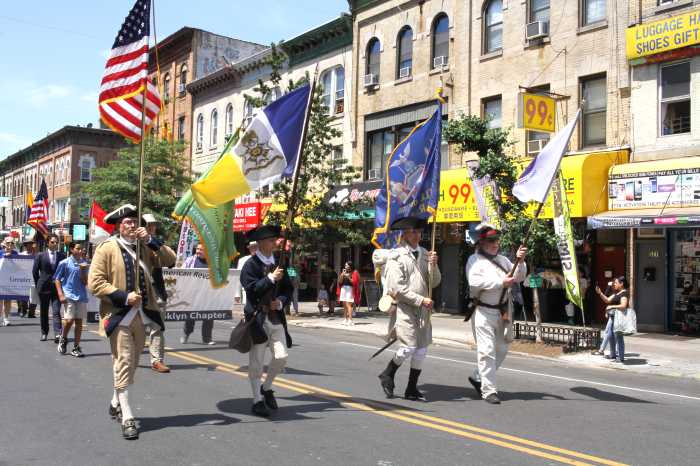US District Judge Peter K. Leisure, changing his tune from a previous decision, has concluded that a non-resident of New York employed mainly outside the state can contest his discriminatory discharge under the human rights laws of New York State and New York City, where the employer, headquartered here, made the allegedly discriminatory termination decision.
As a result, in his January 11 ruling, Leisure refused to grant summary judgment on jurisdictional grounds to an employer accused of sexual orientation discrimination. However, despite evidence in which the employer essentially admits a discriminatory motive in the firing, the judge did not grant summary judgment on the plaintiff’s behalf because of ambiguity over the terms under which the company had retained him.
Federal court finds out-of-state employee can file anti-gay discrimination suit
In October 2005, Erastus Pratt, the proprietor of the LC Play fashion company, terminated Ron Padmore, who had been engaged to do public relations on a one-year written contract. According to the email Pratt sent to Padmore firing him less than six months into the contract, “The models and other people had questions about your sexuality and my company can’t afford to [be] attached to no gay shit. How does it look for an mens [sic] clothing line to have a fruit cake as the spokes person [sic], not my company. Sorry dude, but that’s just how this business is. Best of luck.”
Not only had Pratt proved himself grammatically inept, he had also virtually confessed to sexual orientation discrimination in the email.
Padmore asserts in the complaint that he is not gay and never told Pratt he was, but apparently the employer believed he was.
This would appear to be an open-and shut-case, but Pratt defended against the discrimination claim on three grounds.
First, he asserted that New York law does not forbid sexual orientation discrimination. It’s hard to know how his attorney committed this whopper, but anti-gay discrimination has been illegal in the state since 2003 and in the city since 1986. Upon due consideration, Pratt dropped this defense.
Second, and more seriously, Pratt contended that since Padmore was not a New York resident and apart from occasional visits to the home office actually did most of his work from his Los Angeles residence, where he was located at the time the discharge notice was sent, New York State and City laws did not apply to his case.
At first blush, it seemed Pratt was lucky that the case was assigned to Leisure, who had issued a 2000 decision rejecting a claim against the Metro-North Commuter Railway alleging a violation of the city nondiscrimination ordinance, holding that since the plaintiff was not a city resident and the incident giving rise to the claim happened north of the city line, the law did not apply, even though Metro-North was headquartered in the city. In that case, Leisure found that the question was not just where the defendant was headquartered and where its policies were originated, but also where the impact of the alleged discrimination occurred.
Various federal trial courts in New York have differed about the applicable criteria in determining whether discrimination by a New York-based business toward a non-resident would be subject to state law, with some opinions lining up with Leisure’s 2000 ruling that the impact of the discrimination must be felt here for state or local law to apply.
Leisure has changed his view, influenced by more recent federal and state rulings. One of his Southern District of New York colleagues, Judge Jed Rakoff, the US Court of Appeals for the District of Columbia, and New York State’s Appellate Division have all held that the better interpretation of the law was that if a discriminatory employment decision is made in New York, the law here should apply.
In line with the newer precedent, Leisure found that Padmore had satisfied the jurisdictional limitations of both the state and city laws banning sexual orientation discrimination.
However, in response to Pratt’s third defense, Leisure concluded that a jury trial was needed. Pratt contended that Padmore was an independent contractor, not an employee, so the nondiscrimination statutes would not apply. Both parties agreed that the employment discrimination charges hinge crucially on whether Padmore was an employee. After carrying out a careful analysis of the record in light of a US Supreme Court precedent on the question, Leisure found that there was no clear answer regarding Padmore’s status, in part due to factual ambiguities.
































